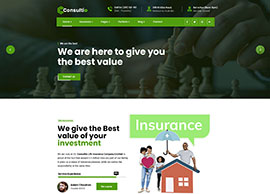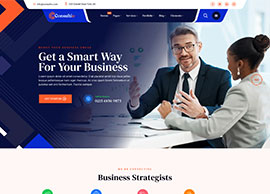Understanding Business Expenses and Which Are Tax Deductible
Conversely, if the service period is more than a year, the liability is classified as non-current, or long-term. While the IRS allows deductions for ordinary and necessary expenses, certain rules and limitations govern how and when these deductions apply. Utilities such as power, internet, sewerage, and garbage pickup are deductible for a commercial location. You can deduct utilities for a home office in proportion to how much your house is utilized for business.
- And, if you have an expense for something that is used partly for business and personal reasons, you can divide and deduct the business portion.
- Examples of indirect expenses are salary, legal charges, utility bills and rent.
- Understanding each of these categories ensures you maximize your deductions within legal boundaries while keeping your finances structured and clear.
- You can also use an independent “Cost of Sales A/c” to list the expenses on the profit and loss account.
Necessary expenses are appropriate because if those expenditures are not made, then your business might not be able to function. Properly managing these costs is essential for the financial well-being what are business expenses definition with examples of a business. It involves carefully tracking expenses, distinguishing between essential and discretionary spending, and finding ways to optimize resource allocation to maximize profitability. In this case, we see that the fixed expenses incurred are rent, salary of staffs, the fixed assets like the cupboards and racks for hanging clothes, the other furnitures for office use, etc.
Tax Deductible Business Expense Examples
An expense could be defined as an event that results in money (or other assets) flowing out of the business. To find out more, browse through our magazine and discover all our articles on expense management. They represent ongoing costs essential for property maintenance and operations. For expenses governed by contracts, such as software or maintenance agreements, the terms of the contract will dictate the amount to be accrued.
This guide covers the ins and outs of business expenses, including common types of expenses, what you might be able to deduct on tax, and why expense management is so important. Business expenses that are considered capitalized costs can be carried forward, but the depreciation amounts will change every year. Net operating losses can be carried forward indefinitely, but they are limited to 80% of the taxable income within the year the carryforward is used.
Understanding Business Expenses and Which Are Tax Deductible
- Accounting types use the term “cost” to describe several different instances in business situations.
- These expenses include rent, salaries, insurance, and utilities, which do not vary with changes in production or sales volume.
- In today’s time, no business can survive without a communication channel, and the highest cost to run any business is the expenses of telephone and internet service.
Business expenses need to be considered ordinary and necessary for them to be tax-deductible. Bankrate is compensated in exchange for featured placement of sponsored products and services, or your clicking on links posted on this website. This compensation may impact how, where and in what order products appear. Once your written budget is complete you need to track your actual expenses each month and compare to your budgeted expenses. This is a great way to find out if you really spend money where you think you do.
What Is an Ordinary and Necessary Business Expense?
Create and revise an annual budget to prevent overspending and going into hostile cash flow areas. Postage and shipping expenses are used to mail business-related items, such as customers’ merchandise and return shipping labels. Businesses that employ fleet cars can deduct the fraction used for commercial purposes. Repair and maintenance of different types of equipment and machinery employed in your organization might also be considered. You can deduct subscriptions to industry magazines or journals linked to your business on your taxes. Membership fees can include those paid to professional or trade organizations that can assist market your firm, as well as those born to your local Chamber of Commerce.
What is the IRS’s definition of business expenses?
They incur costs in terms of mileage, subscriptions, tolls, insurance, meals, etc. Let’s take another look at this issue, which is often synonymous with a mental burden, to break down all the aspects and give you the keys to better management of travel expenses. Actual car expenditures may include petrol, oil, maintenance, tires, insurance, registration fees, licenses, and depreciation (or lease payments) prorated to total business miles traveled.
When we talk about accrued expenses, we’re discussing costs that a business has incurred and benefited from, even if they haven’t yet paid for them or received a bill, over a specific period of time. Capital expenses are not tax deductible as business expenses but may be used for depreciation or amortization. The accounting treatment for other expenses is simple as far as journal entries go.
Monthly telecommunications bills in business premises and supplementary phone lines in a home office and cell phone contracts as a subcategory of office expenditures can be deducted. You’ll want to keep receipts and accurate records for these items to ensure compliance when filing taxes. Each expense plays a role in keeping your business running smoothly and effectively.
What’s The Difference Between Personal vs. Business Expenses?
This includes base salaries, bonuses, health insurance, retirement contributions, and other benefits. Maintain a clear record of all receipts and documentation related to your business expenses. Whether using a digital filing system or a physical filing cabinet, keeping thorough records is essential for tax purposes and for verifying expenses in case of an audit. Accounting software like QuickBooks, FreshBooks, or Xero can automate much of the expense tracking process. These tools categorise expenses, link them to bank accounts, and generate reports that make it easy to review your financials.












































